This week’s Five For Writing is with writer, editor and publisher David Niall Wilson. The founder of Crossroad Press, David is also an acclaimed novelist, he’s a multiple Bram Stoker Award winner and former president of the HWA. His newest novel is Jurassic Ark, and he was kind enough to take time from his various projects to sit down and answer some questions. There’s even some bonus content at the end.
So, don’t let me keep you from the good stuff. Here’s Five For Writing with David Niall Wilson:
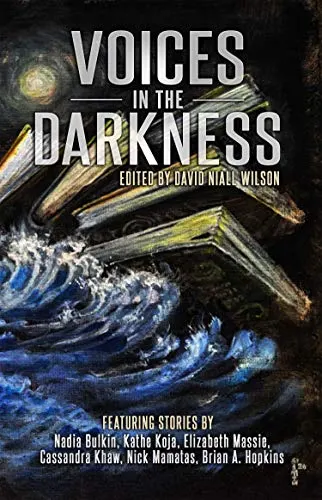 1-We first met when you were writing White Wolf tie-in novels. was it fun to play in
1-We first met when you were writing White Wolf tie-in novels. was it fun to play in
someone else’s sandbox, or was it restricting?
I really enjoyed writing for White Wolf, as well as Star Trek and Stargate. I learned a great deal, though I admit, my personality grated with it a little. A lot of the ideas I liked the best never got picked up, and several times I was told a thing was not right with the rules of the game, when I’d scoured those rules in the information given to me and found things that were obscure, but there. It was much later that I actually read the rest of the books (when we published them at Crossroad Press) that I got more of a feel for how the different clans had acted in other novels, and I understood the sort of “disconnect.” White Wolf wanted me to write within the formula, and I wanted to find all of the things that were loopholes in it.I think, in the end, that we came to a pretty good middle ground. I never knew the figures, but I know The Grails Covenant was always popular (and still is). One of my favorite books is still the Wraith novel I wrote that you edited. I know it was very different from what was expected. I also know because of it I now publish Johnette Napolitano’s journals, so I’ll take that as a win. Also, we’ve stayed in touch, the two of us, and that is very much a win.
Writing your own work and writing for hire are different animals. I’ve also done ghost writing, which is even more stressful. All of it helped me develop my own style and voice. And, as a later question in this interview might reveal, I owe a lot of my work to White Wolf, at least tangentially.
2-You’ve published multiple short fiction collections, as well as numerous novels. Which form do you prefer, and why?
When I stared writing, I had a hard time reaching 2500 words. Short fiction was all I thought about, and I lacked the commitment and confidence to tackle a novel. As time went on, and as I started getting published, the stories grew longer. Part of it was the incentive of being paid by the word, and part of it was just that my writing was growing and expanding. Things missing from earlier stories matured in the later works.
One of my favorite stories about my career is that I’d sold a vampire novel to a small press publisher, which helped to sell a Star Trek on a pitch, then sold a trilogy to White Wolf, but I’d only written the one vampire novel, which got canceled and sold to a different publisher later on, at that point. The pressure was on.
I love a very good short story. I despise bad ones. I have started writing more short fiction again recently, but for years, every story I started turned into a novel. It might be a curse. Several of my novels (including that first vampire novel) began as novelettes or short stories. It all sort of blends together, when I try to nail it all down, and now even the bulk of my novels connect, cross-over, and seem to be one huge story.
I don’t prefer either format, but I am most comfortable writing novels. That was not always true, so I am working my way backward. I have a story upcoming in an anthology from Cemetery Dance, “Hickory Nuts and Bones” that might t be the best I’ve ever written. Cliché as it will sound, it’s a process. They are all as long as they need to be, and if I write them too short, they bother me until I fix it.
3-You basically described your anthology project from 2020, Voices in The Darkness, as a middle finger raised to a bad year. What was the experience of putting that together like?
I was in a sort of writer’s block at the time. The whole experience of the former administration, diving into the depths of the pandemic and 2020 should have given me time and inspiration for writing. I had all the extra hours I needed. I wrote… very little. I finished a novella I liked that came out in an anthology, and I poked at two novels, but itfelt empty. So, having published a magazine back in the day, I put my editor's hat back
on.
I knew if I opened the floodgates, it would drown me, so instead I picked my authors. People I knew I could count on. I explained to them that I wanted to create something in 2020 that was worth remembering. And they got to it.
The book is very good. Maybe not exactly what I thought it would be, but in some ways a lot more. There is no theme. The final story, by Brian A. Hopkins, who I have been luring back into writing where he belongs, is absolutely fantastic. I met new authors. I read their books. It helped me, even as I worked on it.
The stories are so different it’s hard to explain how they work as a whole, but they do. I’m very proud of that, and through the editing, and the work, I got back down to my own writing, finished the story I mentioned above that sold to Cemetery Dance, and moved on into 2021 completing Jurassic Ark.
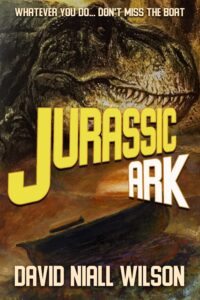 4-These days you wear two hats: writer and publisher. Which do you prefer, and why?
4-These days you wear two hats: writer and publisher. Which do you prefer, and why?
Writer, by a country mile, but that’s maybe an unfair question. As a publisher I’ve had the opportunity to make people happy. I’ve helped revive careers. We’e brought countless books back from obscurity to new generations of readers. I love that we do that. The only thing I don’t love about it is that it eats so much of the short remaining time I have to write my own books and stories.
It’s a very difficult balancing act. At times, it seems impossible. I’m getting a handle on it again, though. Simplifying, streamlining, and carving out time for what matters. I feel as if both of the two hats are vitally important to me now, and they keep me hopping, for sure. Someday, if the stars align, I’ll be able to pull back from the day job to only write and publish. That would be simpler, but I just don’t make enough at either of the things I love to comfortably do that so far. It’s frustrating, I admit. Publisher’s Weekly almost always loves me. Most of my reviews are very positive. The readership has never really come back. I had a period where I did not write much because my life wasmessed up, and so, the readers moved on. The fight to get them back is real (lol).
5-Jurassic Ark: How many dinosaurs is too many?
This book was a revelation to me. Back during the former guy’s regime, my wife and I wrote a book together. Remember Bowling Green: The Adventures of Frederick Douglass- Time Traveler. It was a parody of several gaffes by Trump and his administration involving a non-extant tragedy in Bowling Green, Kentucky, and Trump saying that Frederick Douglass was “doing great things.” It was fun, and funny, but not deep.
Later that year I saw some articles about the guy in KY who created a Noah’s Ark theme park. There were cardboard cutouts of dinosaurs. I thought I’d write another parody where it was 6000 years ago, like the Creationists say. Men and dinosaurs sharing the world. Then I started to write.
Noah’s story is full of a very long list of moral questions. His family, the way he treated them, the way the story ends. It’s a very human story. What ended up happening, as I wrote, was that they came to life. They started to matter. I studied. I bought books on Jewish folklore.
Jurassic Ark is, in my opinion, one of my best books. It’s age appropriate down to teens, I’d guess, but complex enough for adults. It addresses issues and questions I had no idea would be a part of it. It even has a subtle nod to the Irish Rovers, for thosewho get the reference. I hope people will love it. But it DOES have dinosaurs. It has giants, and magic. It’s an adventure, with some romance… we’ll see what the world thinks.
FINAL NOTE: I thought I would see something to bring me to the explanation I mentioned above about how White Wolf influenced my career. My series, “The DeChance Chronicles,” was partially inspired by the desire to write something similar to the World of Darkness novels, but without boundaries. At least two of the stories were rejected by White Wolf along the way and modified to my own world, but a lot of the work I did for White Wolf gave me the skills and mindset to make it all work. Writing truly is a journey, and thanks for the opportunity to sit back, think, and write about it.
Big thanks to David for taking time to answer these questions. Check out his books at his website and don’t forget to visit Crossroad Press, home of my upcoming novel Ghost of a Marriage.
Next week brings an old friend to Five For Writing. Novelist, RPG writer and video game writer extraordinaire Lucien Soulban will be strapped in for what promises to be a very special edition of the series. See you then!
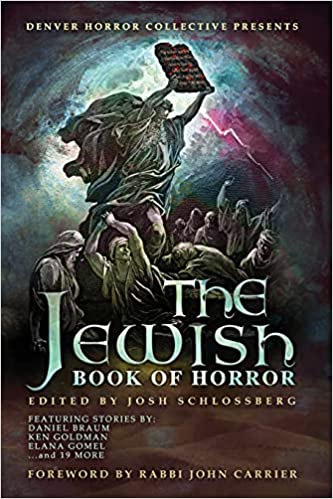 1-What inspired you to create
1-What inspired you to create 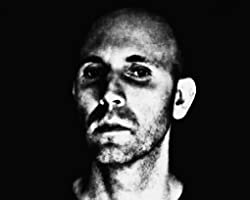 4-Your
4-Your 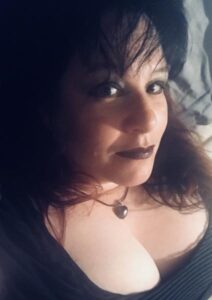 1-You’ve staked out romance in games as territory you’re very comfortable in. How did that come to be?
1-You’ve staked out romance in games as territory you’re very comfortable in. How did that come to be?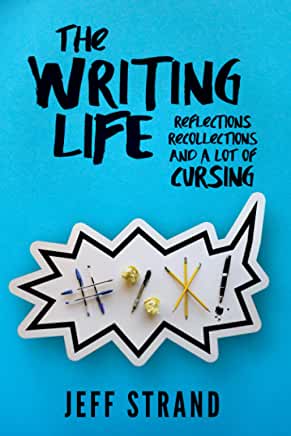 Time for another Five For Writing. This time I interview the talented and prolific
Time for another Five For Writing. This time I interview the talented and prolific 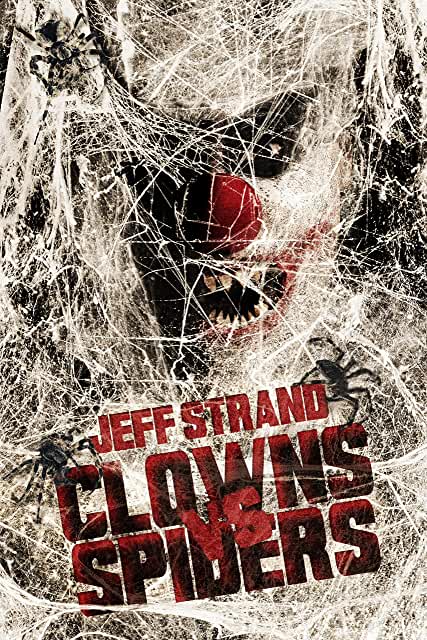 3-Clowns or spiders? Which are more frightening, and why?
3-Clowns or spiders? Which are more frightening, and why?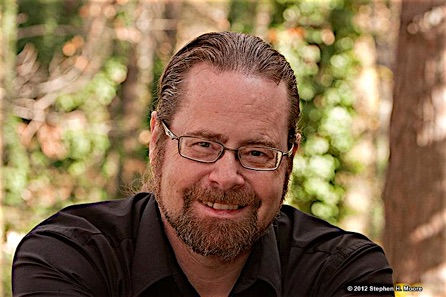 1-You write a ton of horror, but some of your most successful work has been fantasy. Why the switch in genres?
1-You write a ton of horror, but some of your most successful work has been fantasy. Why the switch in genres?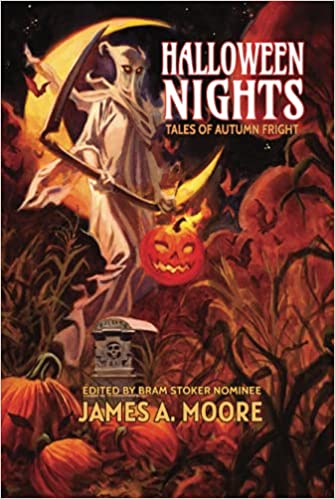 the stories, the theme, and the authors. This was a Halloween anthology, so the theme was easy, but as with ay collection you want to avoid repetition, and you want as many original voices as possible. Also, editor or not, you don’t have as much control of the work as an editor. So instead of just relying on my words, I’m relying on fifteen different authors, all of whom are doing their own thing. After I get the stories I can make suggestions but really it isn’t about what tales I want to tell, it’s about how I can put the moving parts together. It’s a very different mindset and challenge and I love it.
the stories, the theme, and the authors. This was a Halloween anthology, so the theme was easy, but as with ay collection you want to avoid repetition, and you want as many original voices as possible. Also, editor or not, you don’t have as much control of the work as an editor. So instead of just relying on my words, I’m relying on fifteen different authors, all of whom are doing their own thing. After I get the stories I can make suggestions but really it isn’t about what tales I want to tell, it’s about how I can put the moving parts together. It’s a very different mindset and challenge and I love it.